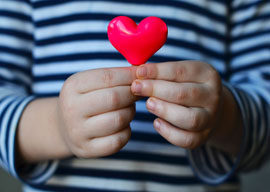
February 17, 2017

Source: Bigstock
The author wasn”t just having an off day such as we all have whenever we try to think. Here is what she wrote in the same journal just before Christmas last year:
There has been a lot of talk lately, at a national, local and personal level, about the importance of putting mental health front and centre. Therefore, as the Christmas season approaches, during this time of gift-giving, we have an opportunity to focus on what we can gift to ourselves, in order to impact in a positive way on our mental health.
And what is the gift we can give ourselves? “Living life authentically, getting in tune with our true sense of how we wish to be in this world.” And what if what we really, truly, and authentically wish to be is Caligula? Well, “research” (before which we must all bow down and worship) shows that “when we are authentic…even if it sets up to be different from others, it still correlates with increased levels of joy and wellbeing.” Oh, happy, happy Caligula!
When reading this kind of saccharine psychological bilge, I feel rather (though not exactly) as I do after having eaten too many chocolate truffles at a sitting. Alternatively, one might call the thoughts of the author of the articles psychological kitsch. Kitsch is hard to define but easy to recognize: It is a kind of sentimental garishness approximating or imitating, but not attaining, art. These articles are conspicuously sentimental, written with something approximating or imitating, but not attaining, thought.
I asked a fishmonger what he thought of the idea of children sending themselves Valentine cards inscribed with what they loved about themselves.
“Valentine’s Day is bad enough,” he said, “without bringing children into it.”
Now, that’s what I call a genuine thought.